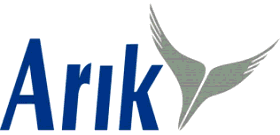 AMCON’s Role in Arik Air: The Untold Story of Reviving an Airline
AMCON’s Role in Arik Air: The Untold Story of Reviving an Airline
The Asset Management Corporation of Nigeria (AMCON) recently revealed critical details about its intervention in Arik Air, shedding light on the challenges faced by one of Nigeria’s largest airlines before its 2017 takeover. Despite lingering disputes with Arik’s former shareholders, AMCON has defended its actions, emphasizing its efforts to salvage the airline from collapse.
Arik Air’s shareholders have consistently criticized AMCON’s takeover, describing it as premature and unnecessary. They argue that prior to the intervention, the airline boasted a fleet of 19 operational aircraft, a robust spare parts inventory valued at over $200 million, and no history of lease defaults or aircraft seizures. However, AMCON has refuted these claims, presenting contrasting evidence of the airline's financial and operational struggles.
According to Jude Nwauzor, AMCON’s Head of Corporate Communications, Arik Air was insolvent when the corporation intervened. While the airline claimed to have 30 aircraft, only a fraction were operational. Several planes were grounded, abandoned, or scrapped, with some repossessed by creditors. For example, two Hawker jets were left inactive in Chester, UK and Lagos, while of the airline’s 15 Boeing 737 aircraft, only six were serviceable. Others were either abandoned in the UK, undergoing maintenance abroad, or inactive in Lagos.
The financial burden was equally dire. AMCON disclosed that Arik’s total debt to the corporation stood at over N227 billion as of December 2024. This was part of a larger debt portfolio of N455 billion, which also included obligations from other entities linked to Arik’s owner. Despite agreements to restructure and repay the debt, AMCON claims these commitments were not honored.
Industry experts have applauded AMCON’s intervention. Olumide Ohunayo, Director of Research at Zenith Travels, highlighted that Arik Air was on the brink of collapse due to its inability to pay insurance premiums or secure fuel for its operations. He noted that AMCON’s involvement not only kept the airline afloat but also preserved jobs and maintained critical connections in Nigeria’s aviation network.
Similarly, Captain Samuel Caulcrick, former Rector of the Nigerian College of Aviation Technology, commended AMCON’s broader mandate to rescue struggling businesses. He suggested, however, that the government could adopt alternative models, such as holding bailout funds in trust, to ensure better oversight and quicker recovery of funds.
Since the takeover, AMCON has invested significantly in Arik Air to keep it operational, despite the airline’s challenges. While some stakeholders advocate returning the airline to its former owners or selling it to willing investors, AMCON remains committed to managing the airline under the framework of the AMCON Act.
As Africa’s aviation sector grows, the lessons from Arik Air’s struggles underscore the importance of robust corporate governance and sustainable financial practices. For travel agents and industry professionals, the airline’s journey serves as a reminder of the complexities involved in keeping aviation businesses afloat in challenging economic environments.
